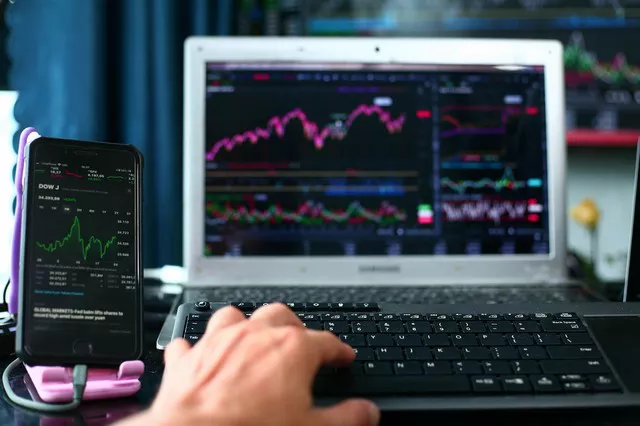In the world of finance, traders employ various tools and instruments to gain insights into market dynamics, assess risk, and capitalize on opportunities. Futures contracts are one such instrument that holds immense significance for traders across different asset classes. These derivative contracts offer valuable information and serve as indicators of market sentiment and potential price movements. In this article, we will delve into the reasons why traders look at futures and the role these instruments play in shaping trading strategies and investment decisions.
Price Discovery and Market Transparency
Futures markets play a crucial role in price discovery, providing valuable insights into market expectations and sentiment. The prices of futures contracts reflect market participants’ collective assessments of future supply and demand dynamics, economic trends, and geopolitical developments. Traders closely monitor futures prices to gauge market sentiment and anticipate potential shifts in asset prices.
The transparency of futures markets facilitates efficient price discovery, allowing traders to access real-time pricing information and market data. By analyzing futures prices and trading volumes, traders can identify trends, patterns, and anomalies, enabling them to make informed trading decisions and capitalize on market opportunities.
Hedging and Risk Management
One of the primary reasons traders look at futures is for hedging and risk management purposes. Futures contracts allow market participants to hedge against adverse price movements in underlying assets, thereby protecting their portfolios from market volatility and downside risk.
For example, commodity producers and consumers often use futures contracts to hedge against fluctuations in commodity prices. By entering into futures contracts to sell or purchase commodities at predetermined prices, these market participants can lock in prices and mitigate the impact of price volatility on their businesses.
Similarly, investors and traders can use futures contracts to hedge against risks in financial markets, such as interest rate risk, currency risk, and equity market risk. By taking offsetting positions in futures contracts, traders can reduce their exposure to adverse market movements and preserve capital in volatile market conditions.
See Also: Do futures have a time limit?
Speculation and Trading Opportunities
Beyond hedging and risk management, traders actively engage in futures markets for speculative purposes, aiming to profit from anticipated price movements. Futures contracts offer a wide range of trading opportunities across different asset classes, including commodities, currencies, interest rates, and equity indices.
Traders employ various strategies, such as trend following, mean reversion, and arbitrage, to capitalize on short-term price fluctuations and market inefficiencies. By analyzing technical indicators, market trends, and fundamental factors, traders identify trading opportunities and execute trades to generate profits.
The leverage inherent in futures trading enables traders to control large positions with relatively small amounts of capital, amplifying potential returns. However, leverage also increases the risk of losses, requiring traders to implement disciplined risk management practices and adhere to trading strategies.
Portfolio Diversification and Asset Allocation
Futures markets offer traders a diverse array of asset classes and investment opportunities, facilitating portfolio diversification and asset allocation strategies. By incorporating futures contracts into their investment portfolios, traders can gain exposure to different markets and asset classes, enhancing portfolio diversification and risk-adjusted returns.
For example, investors seeking exposure to equity markets can trade equity index futures contracts, allowing them to participate in the performance of broad market indices such as the S&P 500 or the Nasdaq 100. Similarly, investors interested in commodities can trade commodity futures contracts, gaining exposure to various commodities such as gold, crude oil, and agricultural products.
Futures contracts also serve as efficient tools for asset allocation, enabling investors to adjust their portfolio weights and rebalance their holdings in response to changing market conditions and investment objectives. By actively managing their asset allocation using futures contracts, investors can optimize their portfolios for risk-adjusted returns and long-term financial goals.
Price Risk Transfer and Arbitrage Opportunities
Another reason traders look at futures is for price risk transfer and arbitrage opportunities. Futures contracts allow market participants to transfer price risk from one party to another, facilitating efficient risk management and capital allocation in the financial markets.
For example, a commercial bank may use interest rate futures contracts to hedge against fluctuations in interest rates, thereby mitigating the impact of interest rate risk on its balance sheet. Similarly, an importer or exporter may use currency futures contracts to hedge against currency exchange rate fluctuations, reducing the risk of adverse movements in foreign exchange markets.
Arbitrage opportunities arise when there are discrepancies in prices between related markets or instruments. Traders exploit these price differentials by simultaneously buying and selling assets or derivatives to lock in risk-free profits. Futures markets often provide fertile ground for arbitrageurs to capitalize on temporary inefficiencies and restore market equilibrium.
Regulatory Oversight and Market Integrity
Futures markets operate under stringent regulatory oversight, ensuring market integrity, transparency, and investor protection. Regulatory bodies such as the Commodity Futures Trading Commission (CFTC) in the United States and the Financial Conduct Authority (FCA) in the United Kingdom oversee futures exchanges and regulate market participants to maintain fair and orderly trading environments.
Traders look at futures markets with confidence, knowing that regulatory authorities enforce rules and regulations to prevent market manipulation, fraud, and abusive trading practices. Regulatory oversight instills trust and credibility in futures markets, attracting both institutional and retail traders to participate in these markets with confidence.
Conclusion
In conclusion, traders look at futures for a variety of reasons, including price discovery, hedging and risk management, speculation, portfolio diversification, price risk transfer, and arbitrage opportunities. Futures markets provide valuable insights into market sentiment, facilitate efficient risk management, and offer diverse trading opportunities across different asset classes.
By closely monitoring futures prices, analyzing market trends, and implementing disciplined trading strategies, traders can capitalize on opportunities and navigate the complexities of futures markets with confidence. Whether hedging against risks, seeking trading opportunities, or managing portfolios, futures contracts play a significant role in shaping trading decisions and investment strategies in today’s global financial markets.


